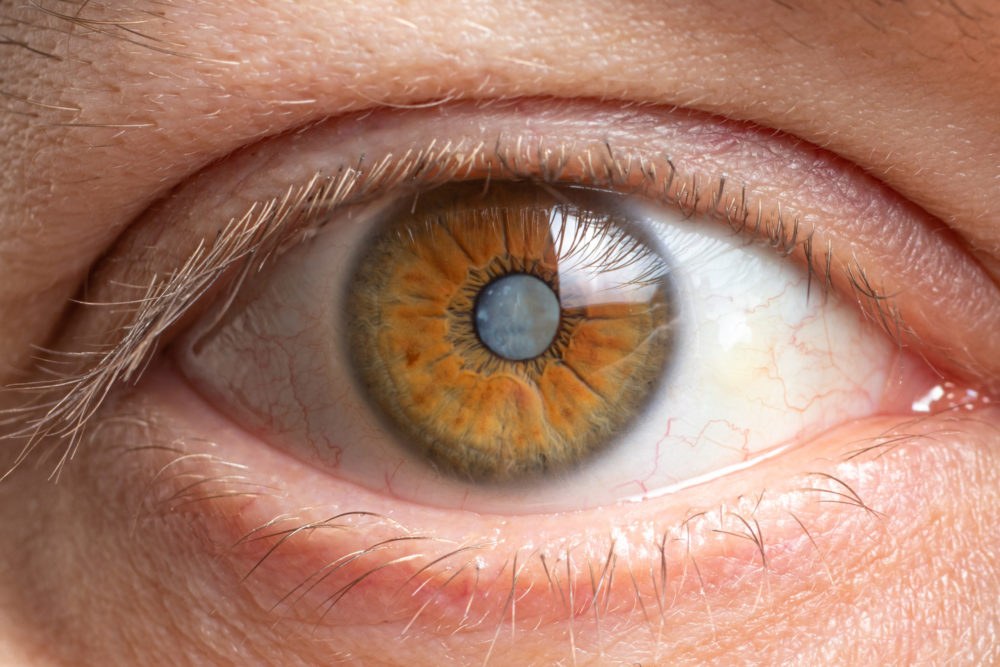
The Impact of Long Waiting Times for Cataract Surgery
Has your vision has started to become blurry or you’ve started seeing double? Moreover, if you find it’s more difficult for you to read, and colours appear duller or yellowish, you may have cataracts—a common problem among the elderly. Fortunately, cataract surgery can restore your sight and the freedom to live. However, cataract surgery NHS waiting times may be too long.
Cataract is the most common cause of visual impairment worldwide, especially among the elderly. Over the years, the crystalline lens in the eye located behind the iris become hard and cloudy. The purpose of the lens is to provide fine focus and when it becomes hard (aged 42+) affects the abilty to focus and in time to come becomes increasingly cloudy impairing vision.
Cataract surgery involves removing the cloudy natural lens of the eye replacing this with an artificial lens. It is a safe and effective procedure that can restore your vision. However, the long cataract surgery NHS waiting times can negatively impact one’s quality of life, and this is why many people choose to have private cataract surgery instead.
What is the waiting time for cataract surgery in the NHS?
More than half of the population over age of 60 have cataracts and increases in prevalence with advancing age. Cataract does not just affect the elderly – in fact, nearly 17% of people aged between 40 and 59 years and 3% of young people aged between 20 and 39 years also suffer from this eye condition. [1]
Genetic and environmental factors also influences development of cataract. Environmental factors of concern are smoking, and exposure to ultraviolet light. Diseases such as diabetes and uveitis as well as use of steroids all increase the risk of cataract formation.
The prevalence of cataracts is currently so high that cataract surgery has become the most common elective surgical procedure in the UK. The medical needs of the ageing population has resulted in significant demand on the national health system (NHS), to the point where in early 2020, in some parts of the UK, patients needed to wait several months for an initial outpatient consultation and then much longer to undergo cataract surgery in the NHS.
What’s more, COVID-19 placed additional strain on the medical system at a time when it was already difficult to meet demand for these procedures. With the pandemic, many elective surgical procedures were postponed, and the number of pending operations has continued to increase across the country with even longer cataract surgery NHS waiting times.
The consequences of long waiting times for cataract surgery
Visual loss from cataract is often gradual and not noticed by many until drawn to their attention by their opticians. However some report glare or poorer vision when driving at night resulting in reduced confidence. Others report difficulty in reading and performing simple tasks confidently. The risk of falls has been shown to be higher. A study conducted at the University of Ottawa Eye Institute concluded that “Patients who waited more than 6 months to undergo cataract surgery experienced more vision loss, a reduced quality of life and increased rate of falls compared with patients who had wait times of less than 6 weeks.” [2] Moreover, sometimes, falls due to vision loss from cataracts are often severe enough to require hospitalisation and end up negatively affecting one’s health and well-being [2].
Additionally the risk of developing dementia is higher in those with unoperated cataracts [3]. Along with a reduction in quality of life these are sufficiently serious enough for cataract surgery to be considered sooner rather than later.
Added to the long waiting times is another problem: many people are operated on in only one eye, even though they have cataracts in both. The current burden placed on the NHS means that it must prioritise patients based on clinical urgency, and therefore, to be considered fit for treatment, certain strict criteria must be met. Treating only one eye has its own consequences as illustrated by researchers at Queen’s Medical Centre of Nottingham who found that reducing cataract surgery waiting times for the second eye to 4 weeks instead of the routine 12-month wait reduced falls by 34%, decreased symptoms of depression, and increased the level of activity and confidence of patients. [4]
If cataracts are left untreated for many years the lens becomes very hard and more challenging to remove resulting in a higher risk of surgical complications. With increasing lens size from cataract, there is a higher risk of developing a particular type of glaucoma.
Should I get cataract surgery through the NHS or a private clinic – is there a difference besides speed ?
Cataract surgery is effective, its complications are minimal, and it will make a big difference in your life, restoring not only your sight but also your freedom and safety. The NHS will safely remove the cataract and provide you with a standard monofocal lens implant. However, they do not offer refractive cataract surgery, which means that in all probability prescription glasses may well be required for astigmatism and reading.
As a service to the community, Centre for Sight offers a One-stop cataract surgery at reduced cost. Similar to cataract surgery with the NHS, the cloudy lens is removed and replaced with a synthetic monofocal or single focus lens. This service was introduced as a consequence of long NHS waiting lists, enabling patients to access affordable treatment quickly and effectively by undergoing all necessary scans and confirmation of a diagnosis of cataract with a consultant, followed by the surgical procedure all on the same day.
Refractive cataract surgery offered at Centre for Sight endeavours to reduce or eliminate the need for glasses after surgery. Private cataract surgery at Centre for Sight, is a customised process which uses a variety of different types of lenses (multifocal/trifocal or lenses with built-in astigmatism) to improve far, intermediate vision and near vision, The choice of lens type is made following a thorough investigation and consultation process and customised to each eye based on eye health, eye optics along with patient activities. Treatment is also available at very short notice, within weeks along with a convenient date for surgery.
In addition, when going through private care, you will also receive a longer consultation. You will be able to ask the specialist all the questions you may have, discuss your medical condition in greater detail so that you fully understand the procedure and experience less anxiety regarding the surgery and anaesthesia, and arrive for your cataract surgery feeling confident.
Another advantage of private cataract surgery in the NHS or private is that unlike the NHS, in a private setting where suitable, both eyes can be treated on the same day.
In making a choice of centre for cataract surgery, it is useful to find out about their track record. For your peace of mind, Centre for Sight conducts a monthly audit of quality standards: while the national posterior capsule rupture rate in the UK is between 1.5-2%, the rate at Centre for Sight in 2020/2021 was 0% and 0.12% in 2021/2022. This reflects our pursuit of very high standards and attention to detail at Centre for Sight.
References:
- Hashemi, H., Pakzad, R., Yekta, A. et al. (2020) Global and regional prevalence of age-related cataract: a comprehensive systematic review and meta-analysis. Eye; 34, 1357–1370.
- Hodge, W. et. Al. (2007) The consequences of waiting for cataract surgery: a systematic review. CMAJ; 176(9): 1285–1290.
- JAMA Intern Med (2022) Association Between Cataract Extraction and Development of Dementia. Feb 1;182(2):134-141.
- Hardwood, R. H. et. Al. (2005) Falls and health status in elderly women following first eye cataract surgery: a randomised controlled trial. Br J Ophthalmol; 89(1): 53–59.
